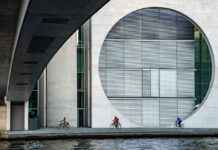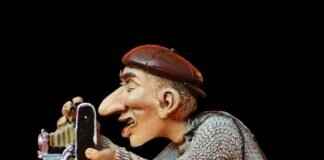This article delves into the top smart devices for home upgrades in 2025, providing insights into their features, benefits, and ways they can enhance your living space.
1. Understanding Smart Home Technology
Smart home technology refers to a range of devices connected to the internet, enabling remote control and automation. These innovations enhance convenience, security, and energy efficiency in modern homes.
2. Benefits of Smart Devices in 2025
- Energy Management: Smart devices optimize energy consumption, leading to lower utility bills.
- Enhanced Security: Advanced features like real-time alerts and surveillance keep your home safe.
- Increased Convenience: Automation allows for effortless control over various home functions.
3. Top Smart Lighting Solutions
Smart lighting options are customizable and energy-efficient. Homeowners can control their lighting remotely, set schedules, and create an ambiance that enhances both comfort and security.
4. Best Smart Security Systems
With features like remote monitoring and smart alerts, these systems provide peace of mind and robust protection for your home.
5. Smart Thermostats for Energy Efficiency
Smart thermostats learn user preferences and automatically adjust heating and cooling, ensuring optimal comfort and energy savings.
6. Smart Appliances Revolutionizing Kitchens
Innovative smart appliances streamline kitchen tasks, offering remote control, automated cooking, and energy monitoring for improved efficiency.
7. Enhancing Home Entertainment with Smart Devices
Smart entertainment devices provide seamless streaming and voice control, creating an immersive viewing experience for families.
8. Smart Home Hubs: The Control Center
These hubs serve as central control points for various smart devices, enabling seamless integration and management through a single interface.
9. Voice Assistants: Your Smart Home Companion
Voice assistants enhance the smart home experience, allowing for hands-free control and facilitating automation.
10. Future Trends in Smart Home Technology
Emerging trends, including AI integration and increased automation, promise to revolutionize our interactions with living spaces.
11. Smart Home Security Best Practices
Implementing best practices for smart home security ensures protection against unauthorized access, safeguarding personal data and home safety.
12. Conclusion: Embracing Smart Living in 2025
As smart devices continue to evolve, embracing these technologies can significantly enhance home comfort, security, and efficiency, making them essential investments for modern living.

1. Understanding Smart Home Technology
Understanding Smart Home Technology has become essential in today’s fast-paced world. As we continue to integrate technology into our daily lives, smart home devices play a pivotal role in enhancing our living environments. These devices connect to the internet, allowing homeowners to control and automate various functions remotely. This connectivity not only enhances convenience but also significantly boosts security and energy efficiency within the home.
At its core, smart home technology comprises various devices, including smart lights, thermostats, security cameras, and appliances, all designed to streamline household management. These devices communicate through a central hub or directly via Wi-Fi, enabling users to monitor and control their home systems from their smartphones or tablets.
Some key features of smart home technology include:
- Remote Access: Homeowners can control devices from anywhere, whether at work or on vacation, providing peace of mind.
- Automation: Schedule devices to operate at specific times, such as turning lights on at dusk or adjusting the thermostat before arriving home.
- Energy Monitoring: Many smart devices provide insights into energy usage, allowing homeowners to make informed decisions about their consumption.
Moreover, the integration of smart technology enhances overall home security. Smart security systems can send real-time alerts to homeowners about any unusual activity, enabling immediate action. Additionally, smart locks and doorbell cameras provide an extra layer of protection, allowing users to manage access to their homes effectively.
In conclusion, smart home technology represents a significant advancement in home management. By embracing these innovations, homeowners can optimize comfort, enhance security, and contribute to energy conservation, making their living spaces not only smarter but also more sustainable.

2. Benefits of Smart Devices in 2025
Smart devices are revolutionizing the way we interact with our homes, providing a multitude of benefits that enhance our daily lives. As we look towards 2025, the advantages of integrating these devices into our living spaces are becoming increasingly evident.
One of the most significant benefits of smart devices is improved energy management. With the ability to monitor and control energy usage, homeowners can significantly reduce their utility bills. For instance, smart thermostats learn user preferences and adjust heating and cooling accordingly, ensuring optimal comfort while minimizing energy waste.
Another key advantage is the enhanced security features offered by smart home devices. Smart security systems, including cameras and doorbells, provide real-time monitoring and alerts, allowing homeowners to keep an eye on their property from anywhere in the world. This not only offers peace of mind but also acts as a deterrent against potential intruders.
Moreover, smart devices greatly increase convenience in our daily routines. Imagine being able to control your lighting, appliances, and security systems all from your smartphone or through voice commands. This level of automation streamlines tasks and allows for a more efficient lifestyle, catering to the demands of modern living.
In addition, many smart devices are designed with sustainability in mind, promoting eco-friendly practices that resonate with the growing awareness of environmental issues. By optimizing energy consumption and reducing waste, smart technology contributes to a greener planet.
Lastly, the integration of smart devices into homes supports a connected lifestyle. With the ability to communicate with one another, these devices create a cohesive ecosystem that enhances the overall living experience. As technology continues to advance, the possibilities for smart homes are endless.
In conclusion, the benefits of smart devices in 2025 extend far beyond mere convenience. From energy management and enhanced security to sustainability and connectivity, these innovations are essential for modern homes, paving the way for a smarter, more efficient future.
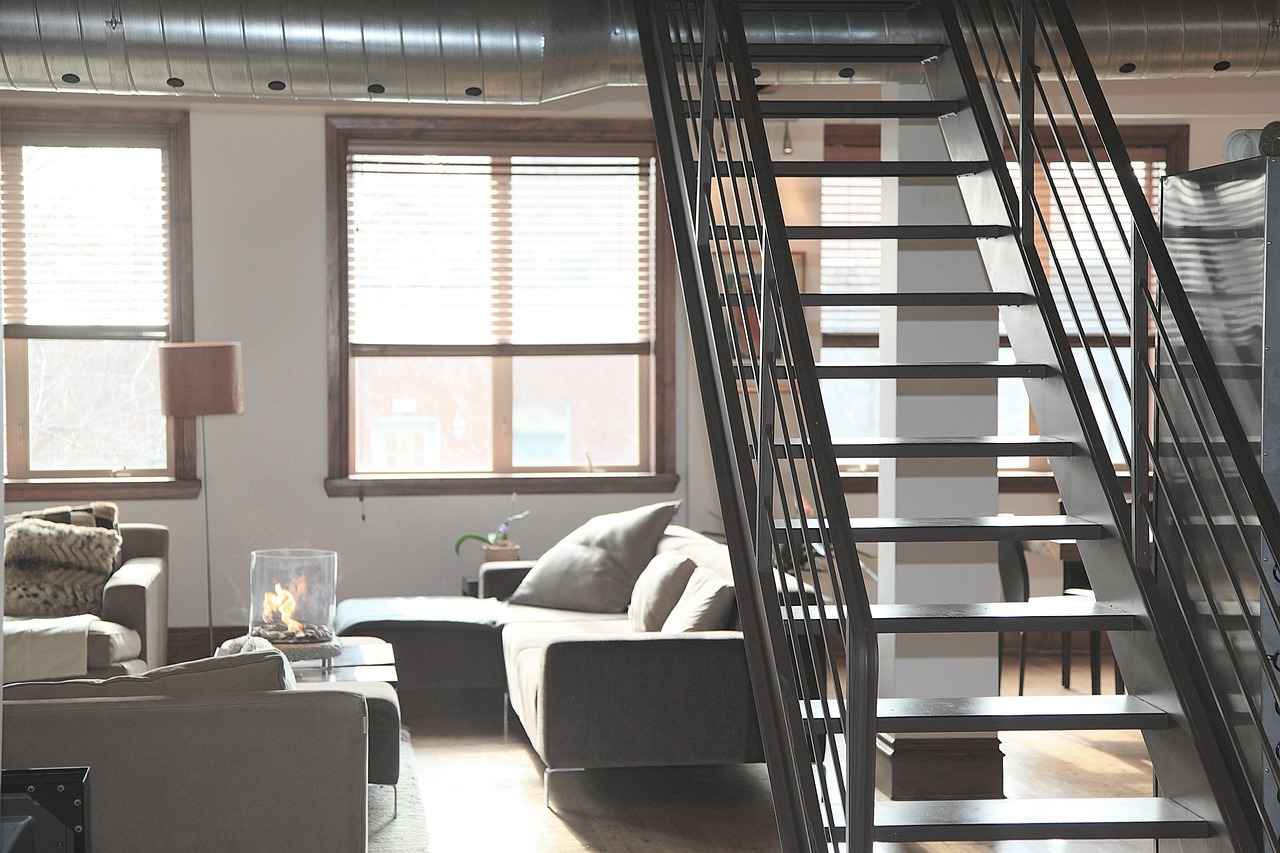
3. Top Smart Lighting Solutions
In today’s fast-paced world, smart lighting solutions have emerged as a popular choice for homeowners looking to enhance their living spaces. These innovative systems not only offer customizable and energy-efficient options but also empower users to control their lighting remotely, creating an atmosphere that suits their mood and needs.
Customizable Lighting Options
One of the most significant advantages of smart lighting is its customizability. Homeowners can adjust brightness levels and color temperatures through mobile applications, allowing for a personalized lighting experience. Whether you’re hosting a dinner party or winding down after a long day, you can easily create the perfect ambiance with just a few taps on your smartphone.
Energy Efficiency and Cost Savings
Smart lighting solutions are designed to be energy-efficient, reducing electricity consumption and ultimately lowering utility bills. Many smart bulbs use LED technology, which consumes significantly less energy than traditional incandescent bulbs. Additionally, users can set schedules to turn lights on and off automatically, ensuring that lights are only used when needed.
Enhanced Security Features
Another critical aspect of smart lighting is its role in enhancing home security. By scheduling lights to turn on and off at specific times, homeowners can create the illusion of occupancy, deterring potential intruders. Some systems even offer motion sensors that can trigger lights when movement is detected, providing an extra layer of protection.
Integration with Smart Home Systems
Smart lighting solutions can seamlessly integrate with other smart home devices, such as voice assistants and security systems. This integration allows for voice control and automation, making it easier than ever to manage your home environment. Imagine walking into your home and having the lights automatically adjust to your preferred settings just by saying a command.
Conclusion
In summary, smart lighting solutions offer a range of benefits, from energy efficiency and cost savings to enhanced security and convenience. By investing in these innovative systems, homeowners can transform their living spaces into more functional and inviting environments.
3.1 Smart Bulbs
Smart bulbs have revolutionized the way we illuminate our homes, offering a blend of energy efficiency and advanced technology. These innovative lighting solutions not only reduce energy consumption but also provide users with unprecedented control over their lighting environment.
One of the standout features of smart bulbs is their ability to be controlled via mobile applications. This functionality allows homeowners to adjust the brightness and color temperature of their lights with ease, tailoring the ambiance to fit their mood or specific activities, such as reading, watching movies, or entertaining guests.
Moreover, smart bulbs can be programmed to operate on a schedule, automatically turning on or off at designated times. This feature is particularly beneficial for enhancing home security, as it can create the illusion of occupancy when homeowners are away. Additionally, many smart bulbs are compatible with voice assistants, allowing for hands-free control through simple voice commands.
Another significant advantage of smart bulbs is their ability to integrate with other smart home devices. For instance, they can be synchronized with smart thermostats or security systems, creating a cohesive smart home ecosystem. This integration can lead to improved energy management and a more seamless living experience.
In conclusion, smart bulbs represent a significant step forward in home lighting solutions. Their combination of energy efficiency, customizable settings, and integration capabilities make them a practical choice for anyone looking to upgrade their home. Embracing this technology not only enhances the aesthetic appeal of living spaces but also contributes to a more sustainable and efficient home environment.
| Feature | Benefit |
|---|---|
| Mobile App Control | Adjust brightness and color remotely |
| Scheduling | Automate lighting for security and convenience |
| Voice Assistant Integration | Hands-free control for ease of use |
| Energy Efficiency | Reduce electricity bills and environmental impact |
- Energy Saving: Smart bulbs consume less power than traditional incandescent bulbs.
- Customization: Choose from millions of colors and brightness levels.
- Remote Access: Control your lighting from anywhere using your smartphone.
3.2 Smart Switches
In the realm of home automation, smart switches are becoming increasingly popular as they offer a modern solution to traditional lighting control. Unlike conventional light switches, smart switches allow users to manage multiple lights from a single interface, making them an essential component of a smart home setup.
One of the primary advantages of smart switches is their ability to integrate seamlessly with voice assistants such as Amazon Alexa, Google Assistant, and Apple HomeKit. This integration enables homeowners to control their lighting with simple voice commands, adding a layer of convenience that enhances daily living.
Moreover, smart switches often come equipped with various features that promote energy efficiency. For example, they can be programmed to turn off lights automatically when no one is in the room or to adjust the brightness based on the time of day. This not only helps in reducing electricity bills but also contributes to a more sustainable lifestyle.
Installation of smart switches is generally straightforward, as they can replace existing light switches without the need for extensive rewiring. However, it is crucial to ensure compatibility with your home’s electrical system and the specific smart devices you intend to use.
In addition to their practical benefits, smart switches can enhance the ambiance of your home. With customizable settings, users can create different lighting scenes for various occasions, whether it’s a cozy movie night or a lively gathering with friends.
As technology continues to evolve, smart switches are expected to become even more advanced, incorporating features such as motion sensors and geofencing capabilities. These innovations will further streamline home automation, making it easier than ever to manage your living space.
In conclusion, upgrading to smart switches is a wise investment for any homeowner looking to enhance convenience, efficiency, and style in their home. With their ability to integrate with existing smart home systems and their user-friendly features, smart switches are paving the way for a more connected and intelligent living environment.

4. Best Smart Security Systems
In today’s fast-paced world, ensuring the safety of your home has never been more crucial. Smart security systems provide homeowners with advanced technologies that enhance protection and offer peace of mind. These systems are designed to integrate seamlessly into your daily life, making it easier to monitor and secure your property.
4.1 Real-Time Monitoring
One of the standout features of smart security systems is real-time monitoring. Homeowners can access live video feeds from their security cameras through mobile apps, allowing them to keep an eye on their property from anywhere in the world. This feature is particularly beneficial for those who travel frequently or have multiple properties to manage.
4.2 Remote Access
With remote access capabilities, users can control their security systems from their smartphones or tablets. This includes locking and unlocking doors, adjusting camera angles, and even activating alarms. Such convenience ensures that homeowners can respond to potential threats immediately, no matter where they are.
4.3 Smart Alerts
Smart security systems are equipped with intelligent alert systems that notify homeowners of any suspicious activity. These alerts can be customized to suit individual preferences, ensuring that you only receive notifications that matter to you. Whether it’s motion detected in your backyard or a door left ajar, you’ll be informed instantly.
4.4 Comprehensive Surveillance
Modern smart cameras offer features like night vision, motion detection, and two-way audio, providing comprehensive surveillance capabilities. This means that even during the darkest hours, you can monitor your surroundings effectively and communicate with anyone at your door.
4.5 Integration with Smart Home Devices
Many smart security systems can be integrated with other smart home devices, creating a cohesive security ecosystem. For instance, when a security camera detects motion, it can trigger outdoor lights to turn on, enhancing visibility and deterring intruders.
Conclusion
Investing in a smart security system is a proactive step towards safeguarding your home. With features like real-time monitoring, remote access, and smart alerts, homeowners can enjoy enhanced protection and peace of mind. As technology continues to evolve, these systems will only become more sophisticated, making them an essential component of modern home security.
4.1 Smart Cameras
Smart cameras have revolutionized home security, allowing homeowners to monitor their properties from virtually anywhere in the world. These advanced devices are equipped with a range of features that not only enhance safety but also provide peace of mind.
One of the most significant advantages of smart cameras is their capability for remote monitoring. Homeowners can access live video feeds through their smartphones or computers, ensuring they can keep an eye on their property at all times. This feature is particularly beneficial for those who travel frequently or have second homes.
Additionally, many smart cameras come with motion detection technology. This means that the camera can detect movement within its field of view and send instant alerts to the homeowner. This proactive approach to security allows users to respond quickly to potential threats, whether it’s an intruder or simply a passing animal.
Another essential feature is night vision capabilities. Smart cameras equipped with infrared technology can capture clear images even in low-light conditions. This ensures that homeowners can maintain surveillance around the clock, regardless of the time of day.
| Feature | Benefits |
|---|---|
| Remote Monitoring | Access live feeds from anywhere |
| Motion Detection | Instant alerts for unusual activity |
| Night Vision | Clear images in low-light conditions |
Moreover, many smart cameras integrate seamlessly with other smart home devices. This means that they can work in conjunction with smart doorbells, alarms, and lighting systems to create a comprehensive security network. For example, if a camera detects motion, it can trigger outdoor lights to turn on, illuminating the area and potentially deterring intruders.
In conclusion, investing in smart cameras is a wise decision for homeowners looking to enhance their security. With features like remote monitoring, motion detection, and night vision, these devices provide a robust solution for safeguarding your home and ensuring your peace of mind.
4.2 Smart Doorbells
In today’s world, enhancing home security is a top priority for many homeowners. One of the most effective ways to achieve this is through the use of smart doorbells. These innovative devices not only provide a video feed of visitors at your doorstep but also facilitate two-way communication, allowing homeowners to interact with visitors remotely.
Smart doorbells come equipped with various features that significantly improve security and convenience. For instance, they typically include motion detection capabilities, which alert homeowners when someone approaches their door, even before the doorbell is pressed. This feature can be particularly useful for monitoring deliveries or detecting potential intruders.
Furthermore, many smart doorbells offer high-definition video streaming, enabling homeowners to see and hear visitors clearly through their smartphones or tablets. This capability ensures that you can verify the identity of anyone at your door, providing peace of mind when you’re away from home.
Another significant advantage of smart doorbells is their integration with smart home systems. They can be connected to other devices such as smart locks and security cameras, creating a comprehensive security network. This integration allows for seamless monitoring and control of your home’s entry points, enhancing overall security.
Additionally, smart doorbells often feature cloud storage options for video recordings, ensuring that you have access to footage of any activity around your home. This can be invaluable for providing evidence in case of theft or vandalism.
In conclusion, investing in a smart doorbell is a wise decision for homeowners looking to enhance their home security. With features like remote communication, motion detection, and integration with smart home systems, these devices not only provide safety but also add convenience to your daily life.
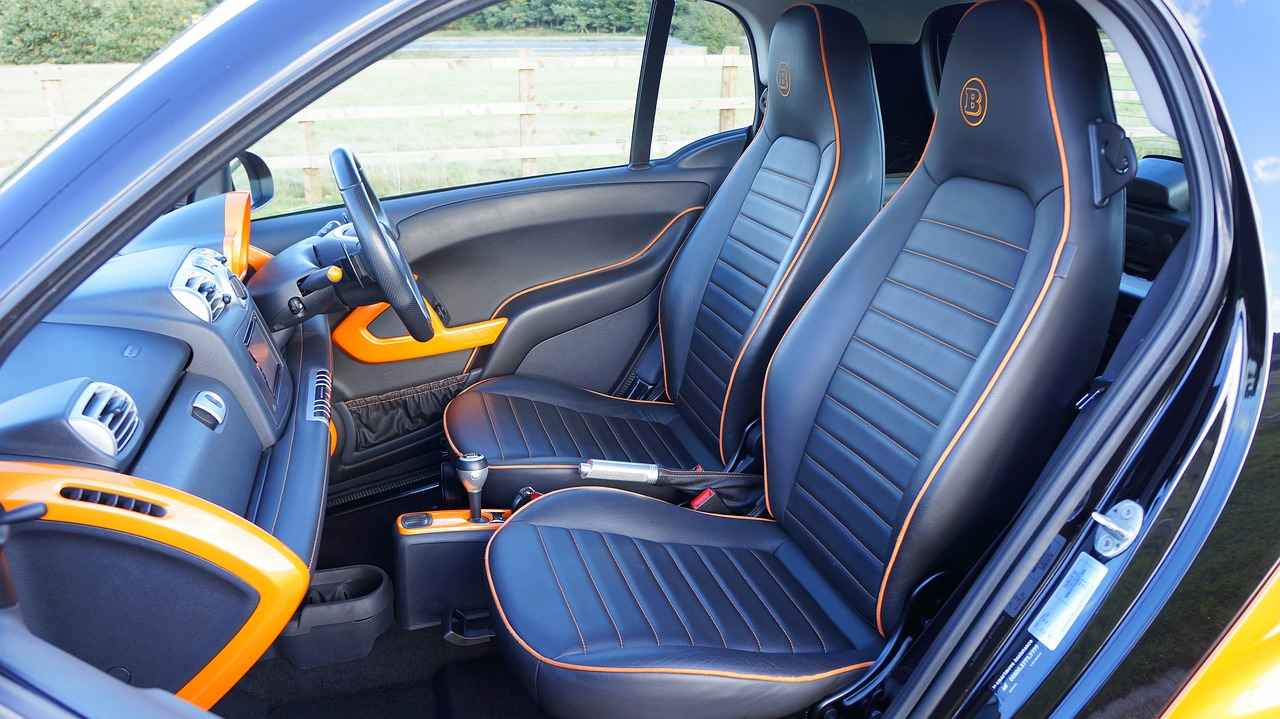
5. Smart Thermostats for Energy Efficiency
Smart thermostats are revolutionizing the way we manage our home environments, offering a blend of convenience, energy efficiency, and personalized comfort. These innovative devices utilize advanced technology to learn user preferences, automatically adjusting heating and cooling systems to optimize energy usage while ensuring a comfortable atmosphere.
One of the standout features of smart thermostats is their ability to learn user habits over time. By analyzing data on when homeowners are present or away, these devices can create tailored heating and cooling schedules. For instance, if you typically leave for work at 8 AM and return at 6 PM, the thermostat will adjust the temperature accordingly, minimizing energy consumption during the day while ensuring a cozy environment upon your return.
Moreover, many smart thermostats are equipped with geofencing technology. This feature allows the thermostat to detect when a homeowner is approaching their residence, automatically adjusting the temperature to a preferred setting. This not only enhances comfort but also contributes to significant energy savings, as systems are not running unnecessarily when no one is home.
In addition to learning capabilities, smart thermostats often come with user-friendly mobile applications. These apps enable homeowners to monitor and control their heating and cooling systems remotely, providing flexibility and control from anywhere. Users can adjust settings, view energy usage reports, and receive alerts about system performance, empowering them to make informed decisions about their energy consumption.
Furthermore, integrating smart thermostats with other smart home devices, such as smart speakers and security systems, creates a comprehensive home automation experience. This integration allows for seamless control and enhanced energy management, making it easier than ever to maintain an efficient home.
In conclusion, investing in a smart thermostat not only promotes energy savings but also enhances overall home comfort. With their ability to learn user preferences and integrate with other smart devices, these thermostats represent a significant step towards a more efficient and comfortable living environment.
5.1 Learning Thermostats
Learning Thermostats are revolutionizing how we manage our home heating and cooling systems. These advanced devices not only provide convenience but also play a significant role in promoting energy efficiency. By analyzing user behavior, they create personalized heating and cooling schedules that adapt to individual lifestyles, ensuring optimal comfort while minimizing energy consumption.
Unlike traditional thermostats, which require manual adjustments, learning thermostats utilize machine learning algorithms to understand and predict user preferences. They monitor daily routines, such as when residents are home or away, and adjust the temperature accordingly. This not only enhances comfort but also leads to notable reductions in utility bills.
One of the key features of learning thermostats is their ability to integrate with smart home systems. This allows for seamless control through mobile apps or voice commands, making it easy for homeowners to adjust settings from anywhere. For instance, if a user forgets to lower the temperature before leaving for work, they can easily do so via their smartphone, ensuring energy is not wasted.
| Feature | Benefit |
|---|---|
| Adaptive Learning | Creates personalized schedules based on user habits. |
| Remote Control | Allows adjustments from anywhere via smartphone. |
| Energy Reports | Provides insights into energy usage and savings. |
Moreover, many learning thermostats come equipped with energy-saving modes that automatically adjust settings during peak energy times, further contributing to reduced energy consumption. This feature not only benefits homeowners financially but also supports broader environmental goals by decreasing overall energy demand.
In conclusion, learning thermostats are a smart investment for any modern home. Their ability to optimize heating and cooling based on user behavior not only enhances comfort but also significantly reduces energy costs, making them an essential component of an efficient and eco-friendly home.
5.2 Smart Zoning Systems
Smart zoning systems represent a significant advancement in home heating and cooling technology, offering homeowners the ability to tailor the climate of their living spaces according to their specific needs. By allowing control over temperatures in individual rooms or areas, these systems not only enhance comfort but also contribute to substantial energy savings.
Unlike traditional heating and cooling systems that operate uniformly throughout the home, smart zoning systems utilize a network of sensors, thermostats, and dampers. This technology enables users to adjust settings based on usage patterns or preferences. For example, if a family spends most of their time in the living room during the evening, they can prioritize heating or cooling in that area while minimizing energy consumption in less-used spaces.
The benefits of smart zoning systems extend beyond comfort. They contribute to energy efficiency by reducing the workload on HVAC systems, which can lead to lower utility bills. Homeowners can monitor and adjust their systems remotely using smartphone applications, making it easier to manage energy use even when away from home.
| Benefits of Smart Zoning Systems | Description |
|---|---|
| Enhanced Comfort | Control temperatures in specific areas to suit individual preferences. |
| Energy Savings | Reduces energy waste by heating or cooling only occupied spaces. |
| Remote Access | Adjust settings from anywhere using a smartphone app. |
Moreover, smart zoning systems can integrate with other smart home devices, such as smart thermostats and voice assistants, creating a cohesive and efficient home environment. As energy costs continue to rise, investing in smart zoning technology becomes an increasingly attractive option for homeowners looking to enhance their living spaces while being environmentally conscious.
In conclusion, smart zoning systems not only improve the comfort of your home but also promote energy efficiency, making them a valuable addition to modern smart home technology.

6. Smart Appliances Revolutionizing Kitchens
Smart appliances are transforming the culinary landscape, making kitchen tasks not only easier but also more enjoyable. In 2025, these innovative devices are designed to enhance efficiency, convenience, and sustainability in the kitchen. With features like remote control, automated cooking, and energy monitoring, smart appliances are revolutionizing how we prepare and enjoy our meals.
One of the most significant advantages of smart appliances is their remote control capabilities. Whether you’re at work or running errands, you can manage your kitchen devices from your smartphone. Imagine preheating your oven while you’re on your way home or checking the status of your slow cooker during a busy day. This level of control allows for flexibility and time-saving advantages that traditional appliances simply cannot offer.
Moreover, automated cooking features are becoming increasingly popular. Many smart ovens and cookers can automatically adjust cooking times and temperatures based on the recipe you select. This not only ensures perfect results but also minimizes the risk of overcooking or burning your meals. The integration of recipe apps allows users to follow step-by-step instructions right on their device’s screen, making cooking more accessible for novices and experts alike.
Energy monitoring is another critical feature that smart appliances bring to the table. By tracking energy consumption, these devices help homeowners make informed decisions about their energy use, leading to cost savings and a reduced carbon footprint. For instance, smart refrigerators can alert users when doors are left open or when the temperature fluctuates, ensuring food safety while optimizing energy efficiency.
In conclusion, the rise of smart appliances is a game-changer for modern kitchens. By incorporating technology that streamlines tasks, enhances convenience, and promotes energy efficiency, these devices are not just a luxury but a necessity for anyone looking to elevate their cooking experience in 2025.
6.1 Smart Refrigerators
Smart Refrigerators are transforming the way we manage our kitchens, making meal planning and food preservation more efficient than ever. Equipped with advanced technology, these devices offer a range of features that not only enhance convenience but also promote healthy eating habits.
One of the standout features of smart refrigerators is their touch screen interface. This interactive display allows users to access a variety of applications, from recipe suggestions to grocery lists. Imagine being able to browse your favorite recipes while checking the contents of your fridge without opening the door!
Additionally, smart refrigerators come with inventory management systems that track food items and their expiration dates. This feature helps users minimize food waste by sending alerts when items are nearing their expiration. With this functionality, planning meals becomes a breeze, as users can easily see what ingredients they have on hand and what needs to be used up.
Moreover, many models integrate with mobile apps, allowing users to manage their fridge remotely. This means you can check your inventory while at the grocery store, ensuring you never forget an essential item again. Some refrigerators even offer automated grocery ordering, making the shopping experience seamless.
In terms of energy efficiency, smart refrigerators often come with features that optimize energy use. For instance, they can adjust their cooling settings based on usage patterns, contributing to lower energy bills and a reduced carbon footprint.
In conclusion, investing in a smart refrigerator not only enhances your kitchen’s functionality but also supports a healthier lifestyle. With features designed to simplify meal planning and reduce waste, these appliances are an essential upgrade for any modern home.
6.2 Smart Ovens
In the ever-evolving landscape of kitchen technology, smart ovens stand out as a remarkable innovation, revolutionizing the way we prepare meals. These advanced appliances not only bring convenience to your cooking experience but also enhance efficiency and precision in the kitchen.
One of the most significant features of smart ovens is their ability to enable remote cooking control. Through mobile applications, users can preheat their ovens, adjust cooking settings, and monitor progress from anywhere within their home. This means that while you’re busy with other tasks, you can ensure your meal is cooked to perfection without being tied to the kitchen.
Additionally, many smart ovens come equipped with recipe integration. This feature allows users to access a vast library of recipes directly from their oven’s interface or through a connected app. Imagine selecting a recipe, and with just a few taps, your oven adjusts the temperature and cooking time automatically based on the specific requirements of the dish. This seamless integration not only simplifies meal preparation but also encourages culinary exploration.
Key Benefits of Smart Ovens:
- Energy Efficiency: Smart ovens often have features that optimize energy usage, reducing your overall consumption.
- Enhanced Safety: Many models include safety features such as automatic shut-off and alerts to prevent overheating.
- Self-Cleaning Options: Some smart ovens offer self-cleaning modes, making maintenance easier and less time-consuming.
As we look toward the future, the integration of smart ovens into our kitchens represents a significant step towards a more connected and efficient home. These appliances not only save time but also enhance the cooking experience, making them an essential addition for anyone looking to upgrade their kitchen.
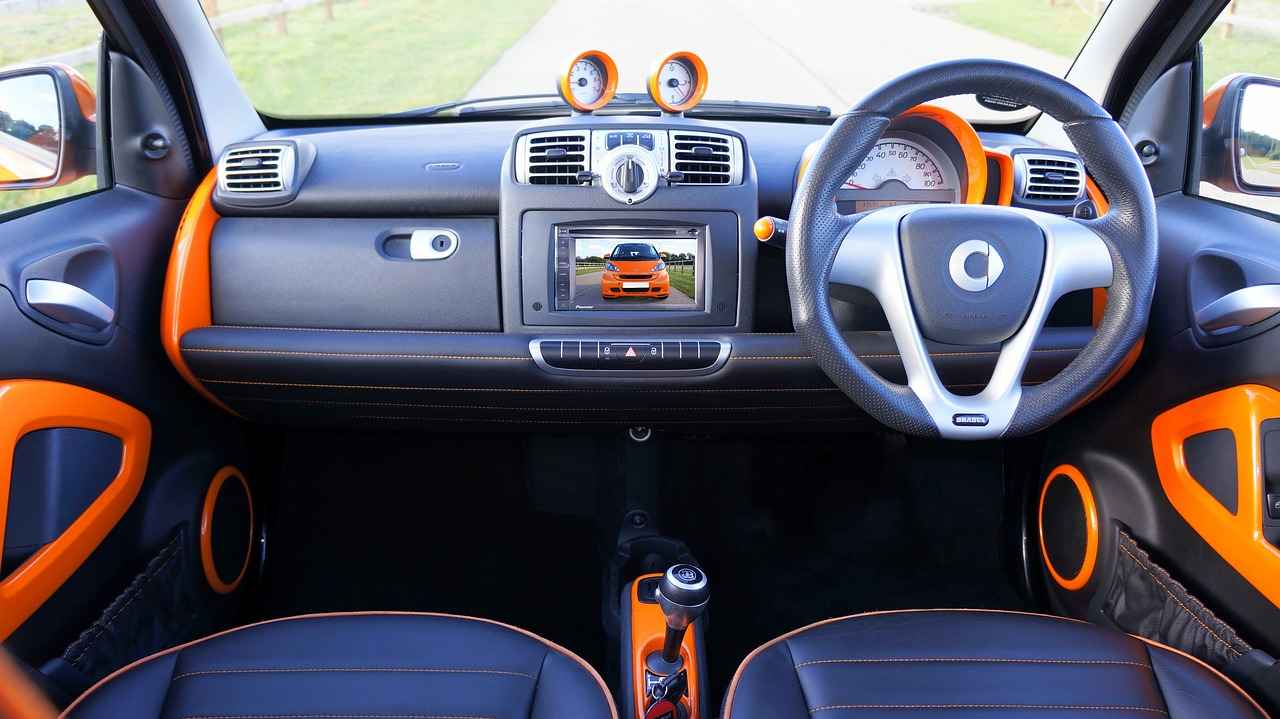
7. Enhancing Home Entertainment with Smart Devices
Enhancing Home Entertainment with Smart Devices
In today’s fast-paced world, smart entertainment devices have transformed the way we consume media, providing an unparalleled viewing experience that combines convenience with cutting-edge technology. These devices not only offer seamless streaming but also integrate voice control and connect effortlessly with other smart home systems.
One of the most significant advantages of smart entertainment devices is their ability to stream content from various platforms without the need for additional hardware. Whether you’re watching your favorite series on Netflix or enjoying live sports, smart TVs and streaming devices allow you to access a vast library of content at your fingertips. This integration means that users can switch between services effortlessly, creating a personalized viewing experience.
Furthermore, voice control has become a game-changer in the realm of home entertainment. With devices like Amazon Echo or Google Nest Hub, users can control their TVs, sound systems, and streaming devices using simple voice commands. This hands-free operation not only enhances convenience but also allows for a more immersive experience, as users can adjust settings without interrupting their viewing pleasure.
Integration with other smart home systems is another crucial aspect of smart entertainment devices. For instance, users can set up routines that dim the lights and adjust the thermostat when it’s time for a movie night. This level of automation creates a cohesive and enjoyable environment, making the home feel more like a personal theater.
In conclusion, smart entertainment devices are revolutionizing how we experience media at home. By offering seamless streaming, voice control, and integration with smart home systems, these devices create an immersive environment that enhances our overall viewing pleasure.
7.1 Smart TVs
Smart TVs have transformed the way we consume entertainment, making them a pivotal addition to any modern home. With their built-in streaming services and voice control capabilities, these devices provide users with effortless access to a vast array of content, from movies and TV shows to live sports and documentaries.
One of the most significant advantages of Smart TVs is their ability to integrate various streaming platforms such as Netflix, Hulu, Amazon Prime Video, and more, directly into the television interface. This means that users no longer need to switch between devices or inputs to enjoy their favorite content. Instead, they can browse through a user-friendly interface that showcases all available options in one place.
Moreover, the incorporation of voice control technology allows users to navigate their Smart TVs with ease. By simply using voice commands, viewers can search for specific shows, adjust volume levels, or switch channels without needing to use a remote control. This feature not only enhances user convenience but also makes the TV more accessible for individuals with mobility challenges.
In addition to streaming and voice control, many Smart TVs now come equipped with advanced features such as 4K resolution, HDR support, and smart home integration. These features ensure that users enjoy high-quality visuals and can connect their TV to other smart devices in their home, creating a cohesive smart ecosystem. For instance, you can control your Smart TV using your smartphone or sync it with smart lighting to enhance your viewing experience.
As technology continues to evolve, Smart TVs are becoming more than just entertainment devices; they are becoming central hubs for home automation and connectivity. With ongoing updates and improvements, investing in a Smart TV is a step towards embracing the future of home entertainment.
7.2 Smart Speakers
Smart speakers have transformed the way we interact with technology, serving as multifunctional entertainment hubs that enhance our daily lives. These devices allow users to play music, control various smart home devices, and access a wealth of information using simple voice commands.
One of the primary features of smart speakers is their ability to stream music from popular services like Spotify, Apple Music, and Amazon Music. With just a voice command, users can request their favorite songs, playlists, or even specific genres, creating a personalized listening experience. This convenience makes smart speakers an essential addition to any home.
In addition to music playback, smart speakers act as a central control point for smart home devices. Users can seamlessly manage their lighting, thermostats, and security systems through voice commands. For instance, saying “turn on the living room lights” or “set the thermostat to 72 degrees” can significantly enhance home automation and convenience.
Moreover, smart speakers provide instant access to information. Whether it’s checking the weather, getting news updates, or setting reminders, these devices make it easy to stay informed and organized. Voice assistants such as Amazon Alexa, Google Assistant, and Apple Siri are integrated into these speakers, allowing for a more interactive experience.
When it comes to enhancing home entertainment, smart speakers can also connect to other audio systems, allowing users to create a multi-room audio experience. This feature is perfect for hosting gatherings or simply enjoying music throughout the house.
In conclusion, smart speakers are not just gadgets; they are essential tools that enhance the way we live, work, and play. Their ability to integrate with other smart home devices, provide entertainment, and access information makes them a valuable addition to any modern home.

8. Smart Home Hubs: The Control Center
Smart home hubs play a crucial role in the modern connected home, acting as the central control point for various smart devices. These hubs allow homeowners to manage everything from lighting to security systems through a single, user-friendly interface. By consolidating control, smart home hubs enhance the overall efficiency and functionality of smart devices, making everyday tasks simpler and more convenient.
The primary function of a smart home hub is to facilitate communication between different smart devices. Many devices operate on different protocols, which can lead to compatibility issues. A smart hub resolves these issues by serving as a bridge, ensuring that devices from various manufacturers can work together seamlessly. This integration allows users to create customized automation routines, enhancing the smart home experience.
- Centralized Control: With a smart hub, users can control multiple devices from one app, eliminating the need to switch between different applications.
- Automation and Scheduling: Smart hubs enable users to set schedules for devices, allowing for automated operations such as turning lights on at sunset or adjusting the thermostat when everyone leaves the house.
- Voice Control Integration: Many smart hubs are compatible with voice assistants, allowing users to control their smart home with simple voice commands.
Setting up a smart home hub involves a few straightforward steps. First, connect the hub to your home Wi-Fi network. Then, add compatible devices by following the manufacturer’s instructions. Once connected, users can customize settings and create automation routines that suit their lifestyle.
In conclusion, a smart home hub is an essential component for anyone looking to enhance their living space with smart technology. By providing a centralized control point, these hubs simplify the management of various devices, making smart living more accessible and efficient. As technology continues to evolve, investing in a smart home hub is a step toward a more connected and convenient home.
8.1 Compatibility and Integration
Choosing the right smart hub is crucial for creating a fully integrated smart home environment. A compatible smart hub acts as the central nervous system of your connected devices, ensuring that they can communicate seamlessly with one another. This integration not only enhances functionality but also maximizes the benefits of a connected home.
When selecting a smart hub, it’s essential to consider the compatibility with your existing devices. Many hubs support a variety of protocols such as Zigbee, Z-Wave, and Wi-Fi, which allows them to connect with a wide range of smart devices, from lights to security systems. Ensuring compatibility can prevent connectivity issues and allow for smoother operation across your home network.
Moreover, a well-chosen smart hub can provide a unified interface for managing all your devices, simplifying the user experience. With a single app or control panel, you can monitor and manage different aspects of your home, such as lighting, temperature, and security settings, all in one place. This centralization not only streamlines your daily routines but also enhances the overall efficiency of your smart home.
Additionally, many smart hubs offer integration with voice assistants like Amazon Alexa or Google Assistant, enabling voice control of your devices. This feature adds a layer of convenience, allowing you to issue commands hands-free, which is especially beneficial during busy moments.
In conclusion, investing in a compatible smart hub is a pivotal step in creating a cohesive smart home ecosystem. It ensures that all your devices can communicate effectively, leading to a more efficient, secure, and enjoyable living environment.
8.2 Setting Up Your Smart Hub
Establishing a smart hub is a pivotal step in creating a fully integrated smart home. This process involves not just connecting various devices but also configuring settings to ensure a seamless and efficient operation. Here’s a comprehensive guide to help you set up your smart hub effectively.
- Choose the Right Smart Hub: Begin by selecting a smart hub that is compatible with your existing devices. Popular options include Amazon Echo Plus, Samsung SmartThings, and Google Nest Hub.
- Connect Your Devices: Follow the manufacturer’s instructions to connect each smart device to the hub. This typically involves using a mobile app to scan for devices and adding them to your network.
- Configure Device Settings: Once connected, adjust the settings of each device through the hub’s interface. This may include setting schedules, adjusting sensitivity for motion detectors, or customizing lighting preferences.
- Integrate Voice Control: If your hub supports voice assistants, enable this feature to allow hands-free control of your devices. This can enhance convenience and accessibility.
- Establish Routines and Automations: Utilize the hub’s automation features to create routines that suit your lifestyle. For example, you can set your lights to turn on automatically at sunset or program your thermostat to adjust temperatures based on your daily schedule.
- Ensure Security: Protect your smart hub by setting strong passwords and enabling two-factor authentication. Regularly check for software updates to keep your devices secure from vulnerabilities.
By following these steps, you can create a cohesive smart home ecosystem that enhances your daily life through convenience, security, and energy efficiency.

9. Voice Assistants: Your Smart Home Companion
Voice assistants have become an integral part of the modern smart home, transforming the way we interact with our devices and enhancing our daily routines. These digital companions not only allow for hands-free control but also provide a seamless way to access information and automate various tasks within our homes.
One of the most significant advantages of using voice assistants is their ability to streamline home management. With simple voice commands, users can control lighting, thermostats, and even security systems without needing to physically interact with the devices. This hands-free approach is particularly beneficial when multitasking or when your hands are occupied.
Moreover, voice assistants serve as a centralized hub for information retrieval. Whether you need to check the weather, set reminders, or search for recipes, these assistants can provide quick answers, making them invaluable in busy households. Their integration with various apps and services allows them to offer personalized responses, enhancing user experience.
In addition to control and information, voice assistants facilitate automation within the smart home ecosystem. Users can create routines that trigger multiple devices simultaneously. For example, saying “Goodnight” could turn off all lights, lock the doors, and adjust the thermostat to a comfortable sleeping temperature, all in one command.
As technology continues to evolve, the capabilities of voice assistants are expanding. They are becoming more intuitive, learning user preferences over time, which enhances their effectiveness and ease of use. This evolution is paving the way for smarter homes where devices communicate and work together more efficiently.
In conclusion, voice assistants are not just a convenience; they are essential tools that enhance the overall smart home experience. By enabling hands-free control, providing instant information, and facilitating automation, they make our lives easier and more connected.
9.1 Popular Voice Assistants
Popular voice assistants have become integral to modern smart homes, providing users with hands-free control and seamless integration with various devices. Among the most widely used are Amazon Alexa, Google Assistant, and Apple Siri, each offering unique features tailored to diverse user preferences.
Amazon Alexa stands out with its extensive compatibility with a wide range of smart devices, allowing users to control everything from lights to thermostats through simple voice commands. Alexa’s skills library is vast, enabling users to customize their experience with thousands of third-party integrations. Moreover, its ability to play music, provide weather updates, and even order products from Amazon makes it a versatile virtual assistant.
On the other hand, Google Assistant excels in natural language processing and context awareness. This feature allows it to understand complex queries and engage in more conversational interactions. Google Assistant integrates seamlessly with Google services, making it an excellent choice for users who rely heavily on Google Calendar, Gmail, and other Google applications. Its ability to control smart home devices is also impressive, offering a user-friendly experience.
Apple Siri, while perhaps less versatile than its competitors, is deeply integrated into the Apple ecosystem. This makes it a preferred choice for users with multiple Apple devices. Siri offers robust privacy features, ensuring that user data remains secure. Its voice recognition capabilities are commendable, allowing for efficient control of smart home devices and access to information.
In summary, the choice of a voice assistant often depends on individual preferences and existing smart home setups. Each of these assistants brings something unique to the table, enhancing the user experience and making smart home management more accessible.
9.2 Optimizing Voice Commands
Optimizing voice commands is a crucial aspect of enhancing the efficiency of smart home interactions. With the rapid advancement of technology, users are increasingly relying on voice-activated systems to manage their home environments. By streamlining voice commands, users can access various functions quickly and easily, making their smart home experience more enjoyable and efficient.
One of the primary benefits of optimizing voice commands is the reduction of response time. When voice commands are clear and concise, smart devices can process them faster, leading to quicker actions. This is particularly important in situations where immediate responses are necessary, such as when adjusting lighting for safety or controlling heating for comfort.
Moreover, customizing voice commands to suit individual preferences can significantly enhance user satisfaction. Many smart home systems allow users to create personalized commands that resonate with their daily routines. For instance, instead of saying, “Turn on the living room lights,” a user might prefer to say, “Let there be light!” This personalization not only makes interactions more enjoyable but also encourages users to engage more frequently with their smart devices.
Another important aspect is the integration of natural language processing (NLP) technologies, which allow devices to understand and respond to more complex commands. By optimizing voice recognition capabilities, smart home systems can interpret a wider range of user inputs, making them more versatile and user-friendly.
To further enhance the effectiveness of voice commands, users should consider regular updates to their devices. Manufacturers continuously improve voice recognition algorithms, which can lead to better accuracy and responsiveness. Keeping devices updated ensures that users benefit from the latest advancements in technology.
In conclusion, optimizing voice commands is essential for maximizing the efficiency of smart home interactions. By focusing on clarity, personalization, and leveraging the latest technologies, users can ensure that their smart home systems are not only functional but also seamlessly integrated into their daily lives.

10. Future Trends in Smart Home Technology
Future Trends in Smart Home Technology are poised to reshape the way we live and interact with our environments. As technology evolves, the integration of Artificial Intelligence (AI) and enhanced automation will play pivotal roles in creating smarter, more efficient homes.
The future landscape of smart home technology is marked by several key trends:
- AI Integration: The incorporation of AI in smart devices allows them to learn user preferences and behaviors. This means devices can anticipate needs, adjusting settings automatically for optimal comfort and efficiency. For instance, smart thermostats can learn your schedule and adjust temperatures accordingly, saving energy without sacrificing comfort.
- Increased Automation: Automation is becoming more sophisticated, enabling homeowners to create complex routines that enhance daily living. For example, you can set your lights to dim, your thermostat to adjust, and your coffee maker to start brewing—all with a single command or at a specific time.
- Enhanced Interoperability: Future smart homes will feature devices that communicate seamlessly across different platforms. This interoperability will allow users to control various devices from a single app or interface, simplifying the smart home experience.
- Sustainability Focus: As environmental concerns grow, smart home technology will increasingly emphasize sustainability. Devices will not only help reduce energy consumption but also promote eco-friendly practices, such as smart irrigation systems that optimize water usage based on weather forecasts.
- Health Monitoring: Future smart homes may incorporate health-monitoring devices that track air quality, humidity, and other environmental factors. These devices will help ensure a healthier living space, alerting homeowners to potential issues before they become serious.
In conclusion, the future of smart home technology is bright, with innovations that promise to enhance our living spaces significantly. By embracing these trends, homeowners can look forward to a more convenient, efficient, and sustainable lifestyle.
10.1 AI and Machine Learning
The integration of AI and machine learning into smart home technology is transforming how we interact with our living spaces. These advancements not only enhance the functionality of devices but also allow them to anticipate user needs and preferences, creating a more personalized experience.
As we move into 2025, smart devices equipped with AI capabilities will become increasingly adept at learning from user interactions. For instance, a smart thermostat will not only adjust temperatures based on past behavior but also consider factors such as weather forecasts and occupancy patterns to optimize energy use and comfort levels. This proactive approach minimizes energy waste while ensuring that homes remain comfortable.
Moreover, AI-driven algorithms can analyze data from various sources, enabling devices to make informed decisions. For example, smart lighting systems can adjust brightness and color based on the time of day and user activities, enhancing ambiance and reducing energy consumption. This level of automation simplifies daily routines, allowing homeowners to focus on more important tasks.
In addition to convenience, AI and machine learning enhance security systems. Smart cameras and doorbells can learn to differentiate between familiar faces and strangers, sending alerts only when necessary. This reduces false alarms and increases the effectiveness of home security measures, providing peace of mind for homeowners.
Furthermore, the integration of voice assistants with AI capabilities allows for more natural interactions. Homeowners can issue commands in a conversational manner, and the assistant can understand context, making the smart home experience seamless and intuitive.
As we look to the future, the potential for AI and machine learning in smart homes is vast. With continuous advancements, devices will become even smarter, adapting to our lifestyles and preferences in ways we have yet to imagine. Embracing this technology will not only enhance home functionality but also pave the way for a more sustainable and efficient living environment.
10.2 Sustainability in Smart Homes
Sustainability in Smart Homes is becoming increasingly important as homeowners seek to reduce their environmental impact while enhancing their living spaces. As technology advances, sustainability-focused smart devices are emerging as essential tools that promote energy conservation and eco-friendly practices. These devices align perfectly with the growing environmental awareness among homeowners, making them a significant consideration for modern living.
One of the primary benefits of sustainability-focused smart devices is their ability to optimize energy usage. For instance, smart thermostats can learn user preferences and adjust heating and cooling systems accordingly, significantly reducing energy waste. This not only helps the environment but also leads to substantial savings on energy bills.
Moreover, smart lighting solutions, such as smart bulbs and smart switches, enable homeowners to control their lighting remotely. This feature allows users to turn off lights when they are not needed and set schedules that align with their daily routines, further minimizing energy consumption. By integrating these devices, homeowners can create a more efficient and sustainable living environment.
In addition to energy management, sustainability-focused smart appliances contribute to eco-friendly practices. For example, smart refrigerators can monitor food inventory and expiration dates, reducing food waste—a significant contributor to environmental issues. Similarly, smart ovens that provide cooking reminders and energy-efficient settings encourage users to adopt more sustainable cooking habits.
Furthermore, the integration of renewable energy sources, such as solar panels, with smart home technology can enhance sustainability efforts. Smart energy management systems can optimize the use of solar energy, ensuring that homeowners maximize their investment in renewable technology.
As we move forward, the demand for sustainability-focused smart devices will likely continue to grow. Homeowners are increasingly recognizing the importance of aligning their living spaces with their values, making eco-friendly technology not just a trend, but a necessity for a sustainable future.
In conclusion, embracing sustainability-focused smart devices is a proactive step towards creating an eco-friendly home. These technologies not only promote energy conservation but also enhance the overall quality of life for homeowners, making them a vital component of modern living.

11. Smart Home Security Best Practices
In today’s increasingly connected world, ensuring the security of your smart home devices is paramount. Implementing best practices for smart home security not only protects your devices from unauthorized access but also safeguards your personal data and enhances overall home safety. As more homeowners adopt smart technology, understanding the vulnerabilities and how to mitigate them becomes essential.
- Regular Software Updates: Keeping your smart devices updated with the latest software is crucial. Manufacturers often release updates that patch security vulnerabilities. By regularly updating your devices, you can ensure optimal performance and protect against potential threats.
- Strong Password Management: Utilize unique and complex passwords for each device. Incorporating a mix of letters, numbers, and symbols can significantly enhance security. Additionally, enabling two-factor authentication adds an extra layer of protection, making unauthorized access much more difficult.
- Secure Your Wi-Fi Network: Your home Wi-Fi network is the backbone of your smart home. Use strong encryption methods such as WPA3, and consider hiding your network name (SSID) to prevent unauthorized users from easily accessing it.
- Limit Device Access: Not every device needs access to your entire network. Segment your smart devices into different networks or use a guest network for less secure devices. This way, even if one device is compromised, your main network remains secure.
- Monitor Device Activity: Regularly check the activity logs of your smart devices. Many devices offer insights into their usage, which can help you identify any unusual behavior that may indicate a security breach.
By adopting these best practices, you can create a robust security framework for your smart home. Remember, the goal is to not only protect your devices but also to ensure that your personal information remains confidential and your home environment is safe.
11.1 Regular Software Updates
Regular software updates are crucial for maintaining the security and performance of smart devices in today’s interconnected world. As technology evolves, cybersecurity threats become more sophisticated, making it imperative for users to keep their devices up to date.
When manufacturers release updates, they often include patches that address vulnerabilities, bugs, and performance enhancements. Ignoring these updates can leave devices exposed to potential attacks, compromising not only the device itself but also the entire home network.
Moreover, regular updates can lead to improved functionality. Many updates introduce new features or enhance existing ones, allowing users to maximize the potential of their smart devices. For instance, a smart thermostat might receive an update that improves its energy-saving algorithms, resulting in lower utility bills and greater comfort.
| Benefits of Regular Software Updates | Description |
|---|---|
| Enhanced Security | Updates often contain patches for known vulnerabilities, reducing the risk of unauthorized access. |
| Improved Performance | Regular updates can optimize device performance, ensuring they run smoothly and efficiently. |
| New Features | Updates may introduce new functionalities, enriching the user experience. |
To ensure optimal security and performance, users should enable automatic updates whenever possible. This feature allows devices to install updates as soon as they are available, minimizing the risk of vulnerabilities. Additionally, users should periodically check for updates manually, especially if they notice any unusual behavior from their devices.
In conclusion, regularly updating software on smart devices is not just a good practice; it is essential for protecting against vulnerabilities and ensuring that devices operate at their best. By staying proactive about updates, users can enjoy a safer and more efficient smart home experience.
11.2 Strong Password Management
In the digital age, where smart home devices are becoming increasingly prevalent, ensuring the security of these devices is paramount. One of the most effective ways to safeguard your smart home network is through strong password management. This involves employing techniques that not only enhance security but also protect personal data from unauthorized access.
- Unique Passwords: Using unique passwords for each device is crucial. Avoid reusing passwords across multiple platforms, as this can create vulnerabilities. Each device should have a password that is difficult to guess and includes a combination of letters, numbers, and symbols.
- Two-Factor Authentication (2FA): Enabling two-factor authentication adds an extra layer of security. This requires users to provide two forms of identification before accessing their accounts, significantly reducing the risk of unauthorized access.
- Password Managers: Utilizing a password manager can help generate and store complex passwords securely. These tools simplify the process of managing multiple passwords while ensuring they are strong and unique.
- Regular Updates: Regularly updating passwords is essential. Set reminders to change passwords periodically, especially for devices that contain sensitive information.
- Monitoring Account Activity: Keeping an eye on account activity can help detect any suspicious behavior early. If you notice unauthorized access attempts, change your passwords immediately.
By implementing these strong password management techniques, homeowners can significantly enhance the security of their smart home networks. This proactive approach not only protects personal data but also ensures a safer living environment.
In conclusion, as smart home technology continues to evolve, prioritizing security through effective password management is essential. By adopting these strategies, you can enjoy the benefits of smart living while minimizing risks associated with cyber threats.

12. Conclusion: Embracing Smart Living in 2025
Conclusion: Embracing Smart Living in 2025
As we look ahead to 2025, the integration of smart devices into our daily lives is not just a trend but a necessity. These technologies are designed to enhance our home environments, offering an array of benefits that contribute to overall comfort, security, and efficiency.
The evolution of smart home technology has made it possible for homeowners to control various aspects of their living spaces remotely. This capability not only increases convenience but also promotes energy efficiency. For instance, smart thermostats can learn your habits and adjust heating and cooling accordingly, leading to significant savings on utility bills.
Moreover, the security features offered by smart devices are unparalleled. With smart cameras and doorbells, homeowners can monitor their properties in real-time, receiving alerts and viewing live feeds from their smartphones. This level of surveillance provides peace of mind, especially when away from home.
In terms of comfort, smart lighting solutions allow users to customize their home ambiance effortlessly. From adjusting brightness to changing colors, these systems can be controlled via mobile apps or voice commands, making it easy to create the perfect atmosphere for any occasion.
As we embrace these innovations, it’s crucial to consider the long-term advantages they bring. Investing in smart home technology is not merely about keeping up with trends; it is about enhancing your lifestyle and making your home a safer, more efficient place to live.
In conclusion, as smart devices continue to evolve, their integration into our homes will undoubtedly become more essential. By adopting these technologies, we can significantly improve our living conditions, making smart living a vital aspect of modern life.
Frequently Asked Questions
- What are the benefits of upgrading to smart devices in 2025?
Upgrading to smart devices in 2025 offers enhanced convenience, improved energy management, and increased security. These devices can automate everyday tasks, help you monitor your home remotely, and even save money on utility bills!
- How do smart lighting solutions work?
Smart lighting solutions allow you to control your lights remotely through mobile apps or voice commands. You can adjust brightness, change colors, and set schedules, all aimed at creating the perfect ambiance while saving energy.
- Are smart security systems worth the investment?
Absolutely! Smart security systems provide real-time monitoring and alerts, giving you peace of mind. With features like smart cameras and doorbells, you can keep an eye on your home from anywhere, enhancing your overall security.
- What is a smart home hub, and why do I need one?
A smart home hub acts as the central control point for all your smart devices, allowing them to communicate and work together seamlessly. It simplifies management and enhances the overall smart home experience.
- How can I ensure my smart home devices are secure?
To keep your smart home secure, regularly update your device software, use strong and unique passwords, and consider enabling two-factor authentication. These steps can help protect your devices from unauthorized access.


